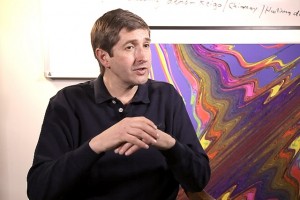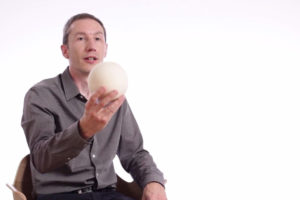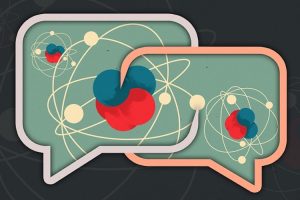The Role of Measurement Tools in Science
Physicist Ronald Walsworth on quantum mechanical transitions inside atoms, blue and red shift for GPS, and use...
How we can see what our Universe looked like in the past? What do scientists mean by saying that our Universe is expanding? Professor of Physics at Massachusetts Institute of Technology Max Tegmark shows baby pictures of our Universe and explains what we see when observing galaxies.
When we try to understand our Universe it’s really important that we think big. Because we humans have again and again and again underestimated not only the size of our cosmos, but also our ability to understand it. We have repeatedly realised that everything that we thought existed was just a small part of a much grander structure. Our planet, our Solar system, our galaxy, which in turn is just a small part of the claster of galaxies, and these galaxies form enourmous filamentary pattern, and even larger structure.
It’s quite possible that space continues even beyond this, but then we would have to wait billions of years for light to reach us from our distant objects. There might even be parallel Universes of various kinds. Before talking more about our Universe we have to understand what these strange yellow and green and blue patterns are. And to understand that we have to talk not just about our place in space, but about our place in time.
When a gas gets sufficiently hot, it turns into a plasma. And the plasma is opaque, not transparent. So, it looks to us, like beyond all the galaxies there is this plasma screen of glowing gas. And it looks tha same in every direction that we look. We can take pictures of this plasma screen, and we have taken pictures of it, and this is what it looks like.

Physicist Ronald Walsworth on quantum mechanical transitions inside atoms, blue and red shift for GPS, and use...

Physicist Xavier Bekaert on the properties of symmetry, homogeneity of universe, and why every point in the sp...

Physicist Daniela Bortoletto on the discovery of the Higgs Boson, the Large Electron-Positron collider, and th...